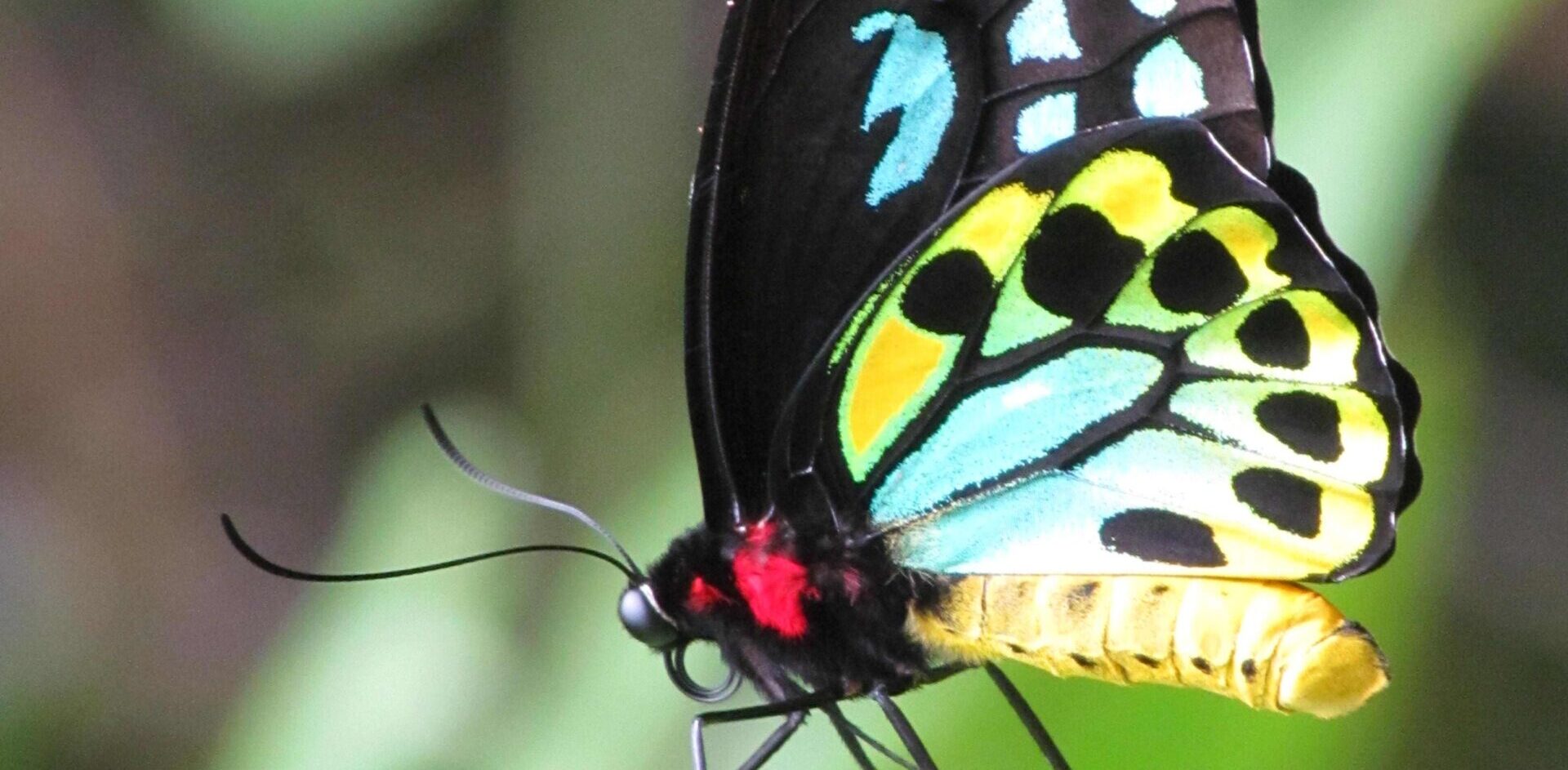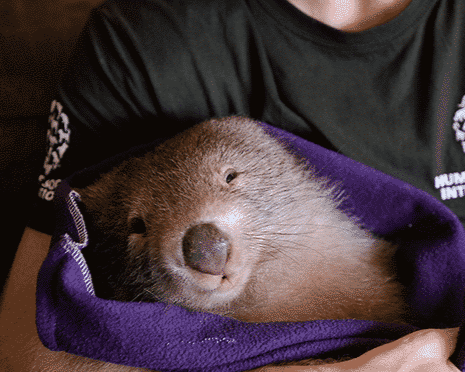The Newsletter of Humane World for Animals' Wildlife Land Trust • Issue 30 • 2025 Read More
This year wildlife trade has hit the news in a big way, with the trade and killing of wildlife pinpointed as a source of COVID-19. It is clear governments worldwide need to take wildlife trade much more seriously.
When thinking of wildlife trade, many people think of exotic species such as elephants and rhinos and their ivory and horns, pangolins for their scales or tigers for their skins, however Australia’s own wildlife is not immune from this global problem. In fact, it is keenly sought after, with reptiles regularly smuggled out of Australia as these are highly prized in the European pet market in particular and sold at exorbitant prices, reaching up to 5,500 Euros for a pair of Shingleback lizards. In recent weeks illegal wildlife exports of blue-tongue lizards have hit the news again after a package was intercepted and a woman charged thanks to the work of Australia’s Border Force.[1]
Whilst illegal trade is a significant problem, poorly regulated legal trade is also a driver of biodiversity decline, and often provides a cover for illegal trade undermining wildlife conservation efforts.
In Australia, we have the benefit of environment laws that have sought to regulate this trade for some time, the Commonwealth’s Environment Protection and Biodiversity Conservation Act 1999 (EPBC Act). Whilst these protections are in place, given the multi-billion dollar[2] scale of the global problem we need to make sure our laws are as tough and effective as possible. The ten-yearly review of the EPBC Act currently underway provides the perfect opportunity to strengthen our own laws and approach to wildlife trade.
One of the main current loopholes in the Act centres on what should and shouldn’t be classified as commercial or non-commercial trade. The EPBC Act currently prohibits the commercial trade in live native mammals, birds, reptiles and amphibians. This protection must be retained. For those species for which commercial exports are not permitted, applicants can seek export permits for non-commercial reasons such as exhibition. Proponents claim such exports are for conservation purposes but this claim is not always properly scrutinised. There have even been examples when there has been no proof that there are genuine plans or the ability to publicly display the species at their final destination.
In 2015 a permit to export 232 parrots to a German organisation, the Association for the Conservation of Threatened Parrots (ACTP), was approved and the birds including endangered Carnaby’s black cockatoos exported up until November 2018, despite ACTP having no premises open for public viewing nor being registered with any major international zoological association.[3] It has since been uncovered that many of these exported birds have since been put up for sale for hundreds of thousands of dollars by the ACTP in direct contravention of the export permit. With such loose exemptions there is a clear risk that this is happening more broadly and could lead to more animals entering the pet trade.
For this reason, HSI is calling for the establishment of a conservation benefit test for all non-commercial wildlife trade activities that puts the onus on applicants to demonstrate the conservation benefit for the species in the wild that will arise as a result of the trade.
HSI also considers that the establishment of a fit and proper person test for applicants to be essential to help navigate through the highly criminalised world of wildlife trade, to ensure the utmost protection for threatened species.
For both legal and illegal trade however one major concern with wildlife trade remains the welfare of those animals involved, down to the individual level. This is obvious in the illegal trade, where reptiles are often found taped up in boxes or tubes, a large proportion of which will not survive their journey. With wildlife trade so lucrative the loss of a number of individuals is of no concern to the trafficker when the price to be obtained from a single individual is high enough.
For legal trade however welfare can be less obvious. Whilst on the face of it welfare concerns may be seen to have been dealt with, with animals transported in more suitable containers, but has the animal’s long term welfare been taken into consideration? Will the travel cause the animal undue stress? Is the destination enclosure of sufficient size? Can the animal express its normal behaviours? Sadly these important questions are currently not given sufficient consideration and HSI would like to see this change and be built into permits and breeding programs as key considerations. This must be based on the ‘five freedoms’ to ensure full consideration of the welfare of that individual as well as for its broader species.
With wildlife trade being such a lucrative venture, the payoff is high. Sadly our analysis demonstrates that the penalties and sentencing in court do not currently provide sufficient incentive or deterrence to ensure compliance with the current laws. We hope the review of the EPBC Act will include stronger guidance to the judiciary to get tougher on wildlife crime.
Humane Society International will continue to push all of these issues in the EPBC Act review to provide the best possible protection for wildlife both leaving and entering our country. Working together with a strong international coalition of partners, providing evidence to Government when and where loopholes are exploited, we hope that our wildlife will soon be benefitting from stronger protection.
You can help by ensuring that your federal MP is aware of the importance of stronger environment laws to help protect Australia’s unique wildlife and their habitats.
Take action for stronger environment laws
To find out more about HSI’s detailed wildlife trade proposals please see our report Next Generation: Best Practice Wildlife Trade Provisions in National Law
Alexia Wellbelove is a Senior Program Manager at the Humane Society International (HSI). She joined the organisation in 2009. With over two decades experience in conservation her current focus is environmental policy, marine conservation (particularly marine mammal and fisheries bycatch) and wildlife trade. She helped found the Places You Love alliance and serves on a number of state and federal government committees. She has represented Australia as a member of the delegations to both the International Whaling Commission (IWC) and the Convention on Migratory Species (CMS).
[1] https://minister.awe.gov.au/ley/media-releases/joint-media-release-woman-charged-exporting-australian-reptiles
[2] Nellemann, C., Henriksen, R., Raxter, P., Ash, N., Mrema, E. (Eds). 2014. The Environmental Crime Crisis—Threats to Sustainable Development from Illegal Exploitation and Trade in Wildlife and Forest Resources. A UNEP Rapid Response Assessment. United Nations Environment Programme and GRID-Arendal, Nairobi and Arendal, www.grida.no
[3]https://www.theguardian.com/environment/2018/dec/11/legitimate-zoo-obscure-german-group-endangered-parrots-actp


